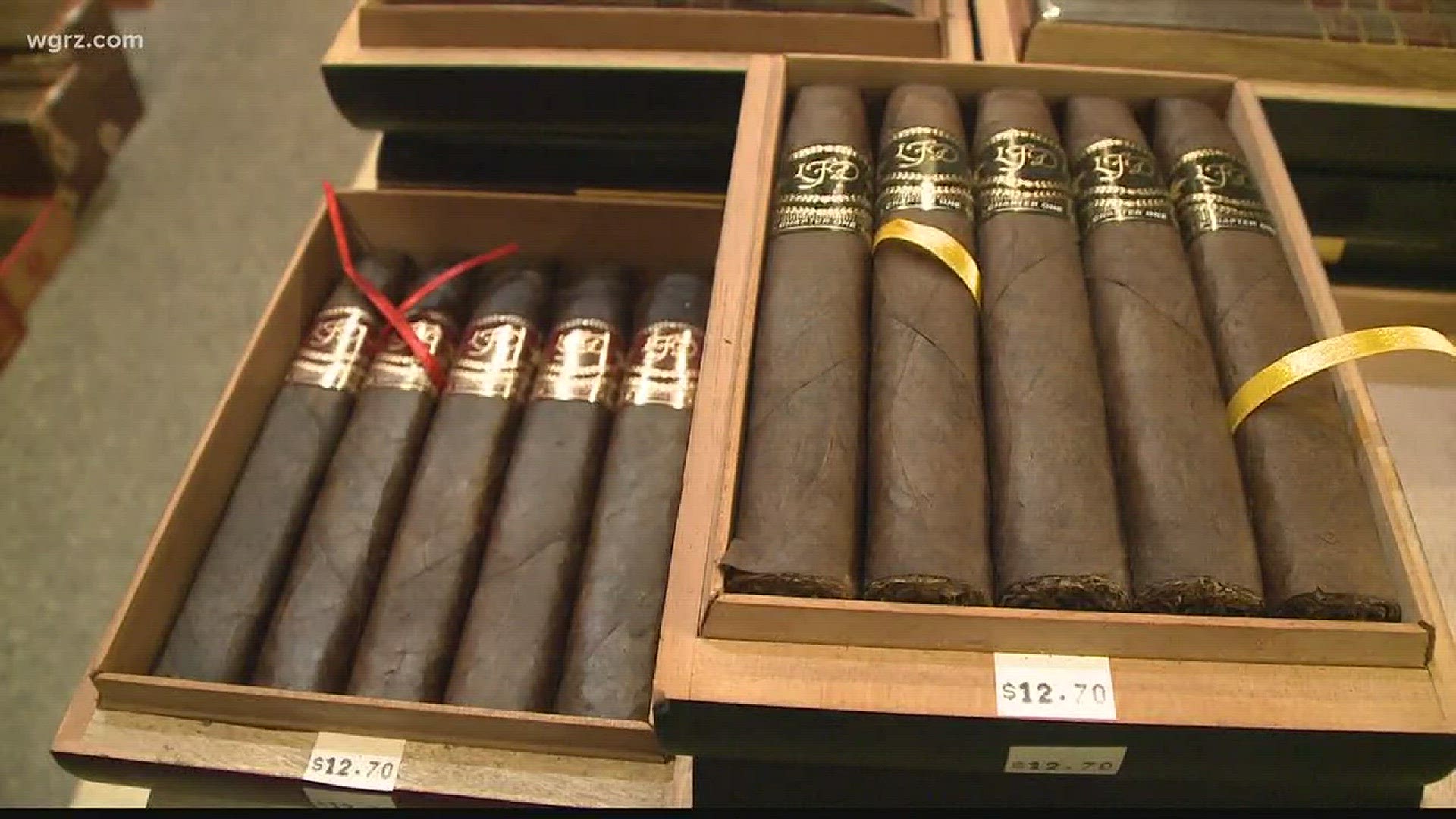BUFFALO, NY - That occasional stogie you might enjoy might cost you nearly 50 percent more under Governor Cuomo's state budget proposal - and some cigar shop owners fear their businesses could go up in smoke as a result.
"I think it's gonna be devastating across the board," said Bob Colasanti, who has owned Virgil Avenue Tobacconist in North Buffalo for 21 years.
The new rules would make the cigar taxes based on invoice costs instead of manufacturing costs...similar to how cigarettes are now taxed.
It would mean the excise tax cigar dealers pay in New York would rise from 28, to 75 percent.
“If I'm faced with the excise tax increase, obviously it's gonna raise the price of my cigars by that amount," said Colasanti, “Maybe an $8 cigar is gonna cost $11 dollars, so that's quite a significant increase."
The Governor believes the state could make an extra $23 million dollars per year in taxes from the change.
However, Colasanti isn’t so sure about that, if past practice is any indication.
Despite increased taxes on tobacco products, tax revenue to New York State from tobacco sales have fallen from 1.5 billion to $1.2 billion over the last five years.
It may be because fewer people are smoking.
But Colasanti and others feel that may be due to something else.
"What happens every time there's an increase is people seek out a better value. They either go to a no tax state (such as Pennsylvania where there's no tax on cigars) or they go on line, or they go to the Native American stores," explained Colasanti, who says it all results in a loss of tax revenue, as well as business. Including, perhaps, sales to his most loyal customers.
"Loyalty only goes so far when it's your pocket book that’s being affected," Colasanti said.
A worse, short term fear for cigar shop owners would be if a so-called floor tax would be enacted should lawmakers adopt the changes.
"It hasn't happened every time there's an increase in the excise tax, but it has happened," noted Colasanti.
A floor tax would involve a fee on whatever inventory might be in a store, to make it align with the new tax rate.
For example, if a store had $30,000 worth of cigars in stock, it would immediately have to pay a floor tax of $13,800.
Though it is uncertain whether a floor tax would be implemented if the new tax system for cigars is adopted, Colasanti is already weighing his options should that occur, and none of them are very appealing.
“We can have a huge inventory reduction sale …where you sell off your inventory, but you take a beating on the margin. You also wouldn’t order new inventory or not much inventory, to mitigate the impact,” Colasanti said. “Or, you could just say I’m x-years old now, I’ve been in this business for years…maybe it’s time to move along. Of course, that would impact five employees here.”
And even if he decided to sell his store to someone who – optimally- would offer jobs to his workers, Colasanti wonders how much the tax increase would impact the value of his business.
“How appealing is it for someone to come in here and purchase a shop which would be under tax duress do to these changes? It’s hard to make a plan right now,” he said.
As premium cigars represent but a small fraction of tobacco sales in the state, shop owners don't have the lobbying clout of big tobacco.
But they do have an ally in the New York Association of Convenience Stores - whose members also sell cigars, and which has come out in opposition to the tax hike.

